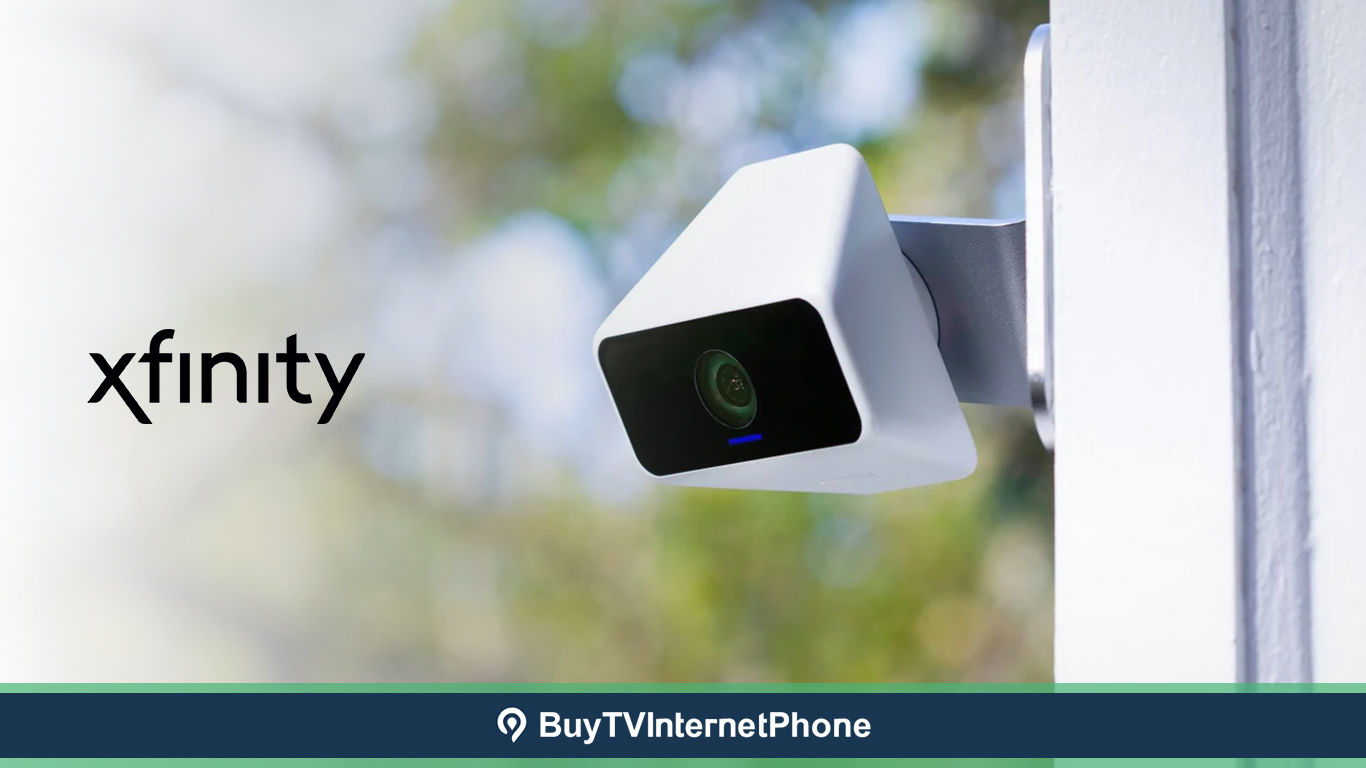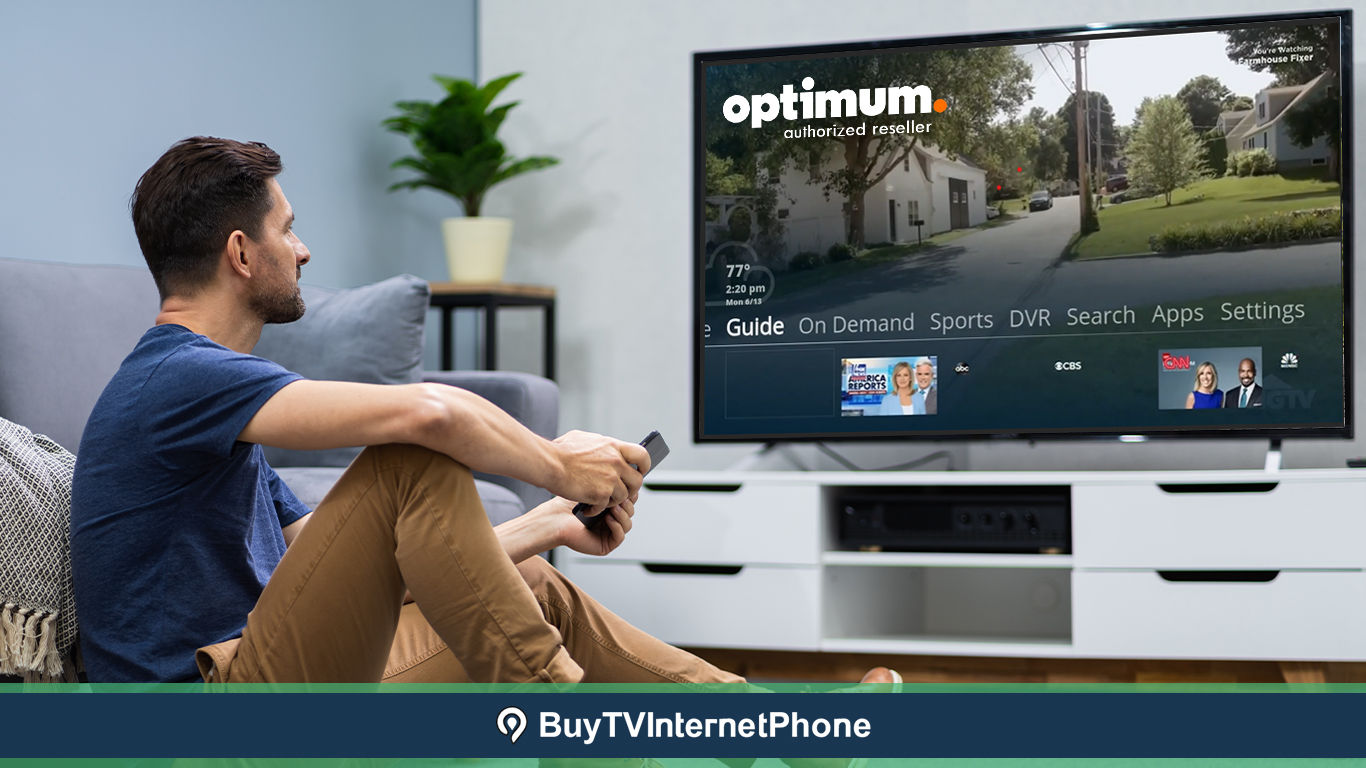Not long ago, cellular internet was limited to occasional use on our phones outside of the home. Today, this wireless internet technology is everywhere, and it’s crucial to keep the world functioning. Besides, we now have fixed wireless and 5G Home Internet, which also rely on cellular networks.

Cellular internet sure has evolved over generations, but does it surpass wired broadband services such as cable and fiber internet? Let’s get to know cellular internet a bit more and find out…
What is Cellular Internet?
Cellular internet is another name for mobile data, which makes it ideal for mobility. You can’t take your home internet everywhere, so you rely on cellular service to remain connected on the go. Cellular internet doesn’t need any wires or cables because it transmits data wirelessly via radio waves.
How Does Cellular Internet Work?
Your smartphone or other mobile device communicates with the nearest cellular tower of your mobile internet service provider. The connection is maintained as long as you remain within range; if you move far away, you will be transferred to the next nearest tower in the carrier’s network.
The 5 Generations of Cellular Internet
1G – speeds up to 2.4 Kbps
2G – speeds up to 50 Kbps
3G – speeds up to 3 Mbps
4G – speeds up to 100 Mbps
5G – speeds up to 10 Gbps
How Reliable Is Cellular Internet?
The 5th generation of cellular internet gave way to new prospects. With the capability to reach speeds as high as 10 Gbps, it seems like it may put an end to more traditional forms of internet; however, that’s not the case. For now, fiber-optic internet retains its spot as the fastest and most reliable connection, but that doesn’t mean cellular internet isn’t a fierce contender.
Cellular internet may not offer the fastest speeds yet, but it is widely favored for other reasons. For starters, cellular coverage extends to many rural and remote areas where wired internet is inaccessible; as a result, it helps minimize the .

Secondly, many people living in big cities choose 5G Home Internet over traditional broadband because of the convenience it offers. The wireless infrastructure is ideal for renters and cramped apartments. While speeds may vary by location and overall performance influenced by environmental factors, you can count on cellular internet to serve its purpose.
Not to mention, cellular internet is your best bet for a safe and reliable connection when you need Wi-Fi while camping, taking a road trip, or traveling within the country.
Pros and Cons of Cellular Internet

Pros
- Extensive coverage
- Keeps you connected on the go
- Wireless connectivity adds convenience
- Safer than public Wi-Fi

Cons
- Speed fluctuations
- Data limitations may apply
- Susceptible to weather conditions
Best Cellular Internet Providers Comparison
The top cellular internet providers in the US include Verizon, AT&T, and T-Mobile. All carriers offer 5G/LTE Home Internet plans and mobile plans. While 5G plans offer the best speeds among cellular internet options, LTE plans are a decent alternative in areas that lack 5G coverage.
Here’s a quick comparison of the best cellular internet plans all three providers have to offer:
| Internet Service Provider | Internet Plan | Price | Download Speed | Data Cap | Subscribe |
|---|---|---|---|---|---|
|
|
5G Home Ultimate |
$60/mo w/ Auto Pay & any Verizon mobile phone plan See Details |
Up to 300 Mbps (typical speeds of 85-250 Mbps) |
Unlimited | LEARN MORE |
|
|
LTE Home Internet |
$35/mo. w/ Auto Pay & any Verizon mobile phone plan. See Details |
Up to 50 Mbps |
Unlimited | LEARN MORE |
|
|
AT&T Unlimited Starter® SL |
$35.99/mo.* per line when you get 4 lines |
Varies by location | Unlimited 5GB hotspot data per line |
LEARN MORE |
|
|
AT&T Unlimited Premium® PL |
$50.99/mo.* per line when you get 4 lines |
Varies by location | Unlimited high-speed data 60GB hotspot data per line per month |
LEARN MORE |
|
|
T-Mobile 5G Home Internet |
starting at $50.99/mo.* w/Autopay |
72 Mbps - 245 Mbps | Unlimited | LEARN MORE |
*Price shown is after all discounts, which start w/in 2 bills Eligible plans: AT&T Unlimited Premium® PL, AT&T Unlimited Extra® EL, & AT&T Unlimited Starter® SL. Compatible device for 5G, and AT&T ActiveArmor app access. Download of app req’d. Some mobile security features are not avail. while roaming internationally 5G coverage not available everywhere. Learn more at att.com/5Gforyou.2 G off net data speeds may apply. After 5GB/30GB/60GB speeds slowed to max. 128kbps. Add’l charges, usage, speed & other restr's apply See Details
Verizon LTE and 5G Home Internet
Verizon 5G Home Internet is a great choice for people who relocate frequently or need reliable internet options for apartment living. The wireless infrastructure reduces clutter and involves less hassle during service transfer to a new address. Moreover, the plug-and-play setup feature saves time and installation costs.
Verizon LTE Home Internet is recommended for consumers who don’t have Verizon Fiber and 5G services in their area. The LTE network extends to many rural and remote areas, thereby providing access to affordable and reliable internet to underserved communities.
AT&T Unlimited Wireless Plans
If you’re looking for the best internet for camping or traveling, an unlimited mobile plan will work out just fine. AT&T’s range of unlimited wireless plans is designed to meet varying internet requirements. Therefore, if you’re planning a trip soon, you’ll definitely find something suitable to keep you connected.
The Starter plan is perfect for solo travelers who generally need to use the internet on their phone for light browsing, occasional calls, navigation (online maps), etc. The Premium plan is ideal for remote workers and group travelers who want to use their mobile hotspot to connect multiple devices.
T-Mobile 5G Home Internet
T-Mobile has the largest 5G network across the country, which makes it accessible to a big portion of suburban and rural residents. If you’re already subscribed to a T-Mobile mobile data plan, you might be eligible to claim a discount on their wireless residential plan.
The Verdict: Is Cellular Internet Reliable?
Cellular internet can be the most reliable option in certain situations. While fiber internet comes on top in terms of speed and reliability, it falls behind in coverage. 5G Home Internet is a promising alternative for those who don’t have access to a wired connection; it is also more affordable than other rural internet options.
Moreover, cellular internet plans built for mobility offer the benefit of keeping you connected while you’re out and about. They’re much safer and reliable compared to public Wi-Fi, which makes them worth your while.
FAQs
Cellular internet is safer than most third-party Wi-Fi networks because the connection between your device and the service provider’s cellular tower is encrypted.
If your cellular internet plan has a data cap, you can use the “data saver” option on your mobile device. Additionally, you may turn off your cellular data whenever you can switch to a safe Wi-Fi network.
Cellular internet may quickly use up your phone battery if you use it to create a hotspot and connect other devices.
On This Page

Need Help?
Let's find Internet services available in your area









Robert is a dedicated and knowledgeable author, an SEO expert with a passion for all things tech. He has a keen eye for detail, allowing him to write interesting blogs that are informative and engaging for readers. He has extensive knowledge of internet, TV, and phone pricing and plans, and has created numerous how-to guides to help users make informed decisions. As a tech geek and TV buff, he is always up-to-date on the latest trends and developments in the industry, making his content always fresh and relevant.
Robert